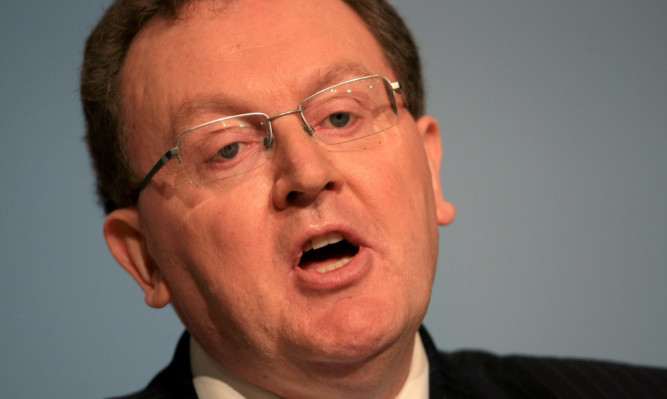New income tax powers for the Scottish Parliament should be in place in 2017, according to the Scottish Secretary.
David Mundell said the UK Government would like to see the new powers, contained in the Scotland Bill, come into force “as soon as possible”.
The Scotland Bill, which is currently before the UK Parliament, was brought forward to implement the recommendations of the post-referendum Smith Commission and gives Holyrood 10% of VAT revenues, increased power over welfare spending and control over income tax rates.
The Scottish and UK governments are in discussions over the terms of a fiscal framework to take account of the increased powers.
Mr Mundell will tell the Conservative Party conference in Manchester that the UK Government is keen to see Holyrood’s new income tax powers commence in 2017 – earlier than had been expected.
It could make taxation a major issue in next year’s Holyrood election campaign as the Scottish Government elected in May would have to set out its plans for the new powers in its first Budget.
Mr Mundell will say on Wednesday: “Because we know that the new tax powers are at the heart of the devolution package in the Scotland Bill, we want them to come on-stream as soon as possible. I would like that to be in 2017.
“The final date for the transfer will be agreed between both of Scotland’s governments as part of the fiscal framework negotiations, which are on-going. But we think 2017 is an achievable and desirable time for these new powers to take effect.
“It would mean that the Scottish Government elected next year would have to include plans for these new powers in its first budget.
“So when people in Scotland go to the polls next year, the parties will need to present their plans for income tax. And they’ll need to be honest about what they will mean for Scottish taxpayers.”
The Scottish Government has said it would not support a deal that risks leaving Scotland “worse off”.
Mr Mundell told BBC Scotland today: “What we are trying to do is ensure thatthe powers that were recommended by the Smith Commission are in place as soon asis practical.
“I think people in Scotland want to move on, they want to see the powers that are coming being used, they want the debate to be about tax spending – what the priorities are in health and education – not just a constant debate about powers and the constitution.”
Speaking on the Good Morning Scotland programme, he said: “We’ve set out an offer to them (the SNP) to make these tax powers available from 2017.
“Of course if they don’t want to take that up then that is a matter for them but I think they would have to explain that to the people of Scotland as to why, having consistently argued for powers and having this very significant power to raise £11 billion in revenue, they chose not to do it.”
A spokesman for Scottish Finance Secretary John Swinney said: “The Tories just need to get on with the job of delivering more powers for Scotland, and a deal which meets the spirit and letter of the Smith Commission recommendations.
“What is currently proposed fails that test, as it limits Scottish ministers’ ability to use the new powers and retains vetoes for UK ministers.
“We still need to reach agreement on a fiscal framework that gives the Scottish Government flexibility to use the new powers effectively, to boost the economy and create jobs – and we have made it crystal clear that we will not support any proposed deal which risks leaving Scotland worse off.”
